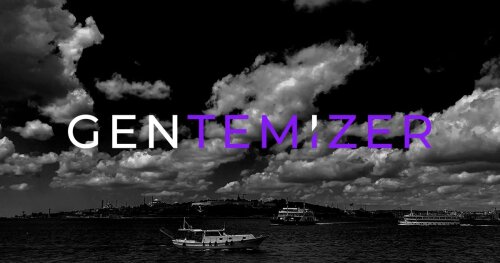Best Information Technology Lawyers in Besiktas
Share your needs with us, get contacted by law firms.
Free. Takes 2 min.
List of the best lawyers in Besiktas, Turkey
About Information Technology Law in Besiktas, Turkey
Besiktas, a bustling district in Istanbul, Turkey, has emerged as a technology hub with a vibrant start-up ecosystem. Information Technology (IT) plays a pivotal role in the region's economic development, with numerous tech companies and software developers operating in the area. As the digital landscape expands, IT law becomes crucial, addressing issues such as data protection, intellectual property, cybersecurity, and digital transactions. Embracing both national regulations and international standards, IT law in Besiktas ensures that technological advancements align with legal frameworks, fostering innovation while safeguarding individual and corporate rights.
Why You May Need a Lawyer
In the dynamic field of IT, seeking legal advice can prove invaluable in several situations. Some common reasons one might need a legal expert include:
- Navigating data protection laws to ensure compliance, especially with GDPR regulations if interacting with the European market.
- Understanding intellectual property rights to protect software, databases, and technological inventions.
- Drafting and reviewing technology-related contracts, such as software licensing agreements or service level agreements.
- Handling disputes regarding domain names, online content ownership, or patent infringements.
- Receiving advice on e-commerce regulations and consumer protection laws.
- Assisting in setting up tech start-ups, including legal structuring and regulatory compliance.
Local Laws Overview
Understanding local laws is essential for effective IT operations in Besiktas and beyond. Key aspects include:
- Data Protection Law: Turkey’s Law on the Protection of Personal Data (KVKK) aligns with EU GDPR standards, focusing on how personal data is collected, processed, and stored.
- Intellectual Property Law: Enforced through the Turkish Patent and Trademark Office, this covers copyright, patents, trademarks, and designs critical to tech development.
- Electronic Commerce Law: Governs digital contracts, electronic signatures, and regulations for online business activities.
- Cybersecurity Regulations: Implemented to protect information systems, with increased emphasis on preventing cyber threats and managing data breaches.
- Digital Taxation: Laws regarding taxes applicable to digital services, influenced by global changes in taxing rights for digital activities.
Frequently Asked Questions
What is considered personal data under Turkish law?
Personal data involves any information relating to an identified or identifiable person, such as names, addresses, identification numbers, and online identifiers.
How does Turkey's data protection law (KVKK) compare to GDPR?
KVKK is largely in alignment with GDPR, with similar principles on consent, data protection rights, and obligations for data processors and controllers.
What should be included in a software licensing agreement?
A software licensing agreement should specify the licensing terms, usage rights, restrictions, maintenance and support details, and dispute resolution mechanisms.
Are there specific laws regarding online advertising in Turkey?
Yes, advertising in digital spaces is subject to both the E-Commerce Law and regulations from the Advertising Standards Authority, ensuring fair and transparent practices.
Do I need to register a trademark for my tech start-up?
Registering a trademark is advisable to safeguard your brand identity legally and to prevent others from using a similar mark or name in your industry.
What are the consequences of a data breach in Turkey?
Consequences can include fines, criminal penalties, and reputational damage, with businesses required to notify the Turkish Data Protection Authority promptly.
How can I ensure my e-commerce site complies with Turkish laws?
Ensure compliance by adhering to the E-Commerce Law, implementing secure payment systems, and providing clear terms of service and consumer rights information.
What regulations apply to tech start-ups in Besiktas?
Start-ups must comply with general business regulations, tax rules, employment laws, and specific tech regulations, such as data protection and intellectual property laws.
How is digital content creation protected under Turkish law?
Digital content is protected under copyright law, ensuring creators have exclusive rights to use and distribute their work, while third parties require permission for use.
What actions can be taken against cybersecurity threats?
Implement robust cybersecurity measures and comply with national regulations. In case of breaches, report to the relevant authorities and follow incident response protocols.
Additional Resources
For further assistance, consider reaching out to the following resources:
- Turkish Data Protection Authority: Offers guidance on data protection compliance and regulations.
- Turkish Patent and Trademark Office: Provides services related to intellectual property rights.
- Information and Communication Technologies Authority (ICTA): Regulates telecommunications and broadcasting sectors in Turkey.
- Local Bar Associations: Offer legal assistance and can connect you with IT law specialists in Besiktas.
Next Steps
If you require legal assistance in the field of Information Technology in Besiktas, consider the following steps:
- Identify specific legal needs, whether it's related to data protection, intellectual property, or another area.
- Consult with a legal practitioner specializing in IT law, who can provide guidance tailored to your circumstances.
- Gather any relevant documents, contracts, or communications that may pertain to your legal issue.
- Engage with local legal resources or bar associations to find reputable lawyers or legal firms.
- Stay informed about current IT laws and regulations to ensure ongoing compliance and risk management.
Lawzana helps you find the best lawyers and law firms in Besiktas through a curated and pre-screened list of qualified legal professionals. Our platform offers rankings and detailed profiles of attorneys and law firms, allowing you to compare based on practice areas, including Information Technology, experience, and client feedback.
Each profile includes a description of the firm's areas of practice, client reviews, team members and partners, year of establishment, spoken languages, office locations, contact information, social media presence, and any published articles or resources. Most firms on our platform speak English and are experienced in both local and international legal matters.
Get a quote from top-rated law firms in Besiktas, Turkey — quickly, securely, and without unnecessary hassle.
Disclaimer:
The information provided on this page is for general informational purposes only and does not constitute legal advice. While we strive to ensure the accuracy and relevance of the content, legal information may change over time, and interpretations of the law can vary. You should always consult with a qualified legal professional for advice specific to your situation.
We disclaim all liability for actions taken or not taken based on the content of this page. If you believe any information is incorrect or outdated, please contact us, and we will review and update it where appropriate.












